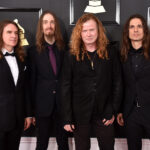“The Phantom of the Opera” is more than just a musical; it’s a global phenomenon. Penned by Andrew Lloyd Webber, with lyrics crafted by Richard Stilgoe and Charles Hart, the show’s journey began at the Sydmonton Festival in 1985. Starring Colm Wilkinson, Sarah Brightman, and Clive Carter, this initial performance offered a glimpse into what would become a theatrical masterpiece. The official premiere graced Her Majesty’s Theatre in October 1986, under the direction of Harold Prince and choreography by Gillian Lynne. Michael Crawford, Sarah Brightman, and Steve Barton took on the lead roles, setting the stage for a production that would redefine musical theatre. To understand the enduring appeal, one must delve into the very fabric of its creation, exploring the “Phantom Of The Opera Words To Songs” that give life to this timeless story.
The West End production’s success was just the beginning. By May 2016, it had become the longest-running show in both the West End and Broadway history, surpassing 23,000 performances across major stages and over 2,000 more worldwide. To put this into perspective, its closest competitor, “Les Miserables,” trails behind with over 19,000 performances. This incredible milestone underscores the captivating power of the “Phantom of the Opera” and its unforgettable words to songs.
Broadway Beckons and Global Acclaim
In January 1988, “The Phantom of the Opera” debuted on Broadway at the Majestic Theatre, retaining Harold Prince as director and Gillian Lynne as choreographer. The original London cast, including Michael Crawford, Sarah Brightman, and Steve Barton, reprised their roles for the Broadway premiere. By February 2016, the Broadway production had reached an astonishing 11,670 performances and continued its run as of May 2016. The Asian premiere followed in October 2014 at the MDM Theater, featuring lyrics translated by A. Ivashchenko and starring Dmitry Ermak, Ivan Ozhogin, Elena Bakhtiyarova, Tamara Kotova, and Evgeny Zaitsev. The musical’s global footprint expanded, captivating audiences across numerous countries.
The first American national tour commenced in 1991 in Los Angeles, culminating at the California Pantages Theatre. “The Phantom of the Opera” has since been staged in 30 countries across all continents, drawing an estimated audience of over 150 million people worldwide. In 2004, the musical transitioned to the silver screen with Joel Schumacher directing the film adaptation. Gerard Butler, Emmy Rossum, and Patrick Wilson starred as the Phantom, Christine, and Raoul, respectively, bringing the iconic “phantom of the opera words to songs” to a wider audience. The stage production has garnered prestigious accolades, including Outer Critics Circle, Tony, Drama Desk, and Laurence Olivier Awards, solidifying its place in theatrical history.
A Timeless Legacy and Continued Innovation
“The Phantom of the Opera” celebrated its 35th West End anniversary in October 2021 with a special gala, reuniting original cast members and Andrew Lloyd Webber. Broadway marked its 13,000th performance in April 2022, demonstrating its sustained popularity. Even during the pandemic, the musical innovated, offering a successful live-streamed performance that reached global audiences, proving the timeless appeal of its story and music.
Recent tours have incorporated updated special effects and staging, keeping the experience fresh for new and returning viewers. A significant moment was Michael Crawford’s return for a special performance in 2023, celebrating his legendary portrayal of the Phantom. Looking ahead, plans for a new film adaptation are underway, promising a modern interpretation of this classic tale and ensuring that the powerful “phantom of the opera words to songs” continue to resonate with generations to come.
Release date: 1986
Last Update: August 06th, 2024

